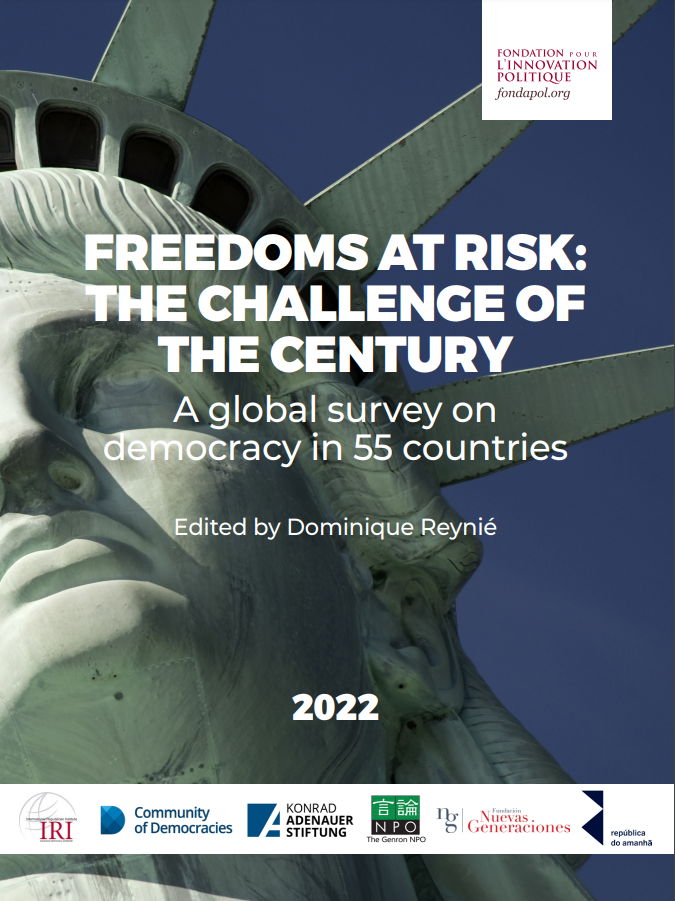IRI Partners with Leading French Foundation, Community of Democracies, and other Partners for 55-Country Survey on the State of our Democracies

Democracies today face their biggest set of challenges from authoritarian regimes since the end of the Cold War. Defending democracy must be a priority if the world is going to know peace and prosperity throughout the twenty-first century.
Understanding citizens’ expectations, aspirations, and frustrations with our democracies is crucial if we are going to meet this momentous challenge. That is why International Republican Institute has partnered with the The Fondation pour l’Innovation Politique (Fondapol, France), The Community of Democracies (Intergovernmental organization), the Konrad Adenauer Stiftung (Germany), the Genron NOP (Japan), the Fundación Nuevas Generaciones (Argentina) and República do Amanhã (Brazil) to work on an extensive international public opinion survey conducted across 55 countries around the world.
The accumulated data was analyzed extensively by Fondapol, and published in: Freedoms at Risk: The Challenge of the Century, with versions in French, Spanish, Arabic, Portuguese, and Japanese languages available on our partners’ websites. It looks in detail at who and what democracies are afraid of, but also why the democratic ideal still resists in a dangerous world where autocracies are trying to push their model and corrode governance.
The publication studies the results of a 39-question survey administrated by Ipsos – a leading polling company – across each of 55 countries (the 27 Member States of the EU, Albania, Australia, Belarus, Brazil, Bosnia-and-Herzegovina, Canada, Georgia, India, Indonesia, Israel, Japan, Kosovo, Lebanon, Mexico, Moldova, Montenegro, New Zealand, Nigeria, North Macedonia, Norway, the Philippines, Serbia, South Korea, Switzerland, Tunisia, Ukraine, the United Kingdom and the United States). In total, 47,408 people were surveyed in 45 national languages through representative national samples from the population aged 18 years old and above.
Click here to read the survey.
Top